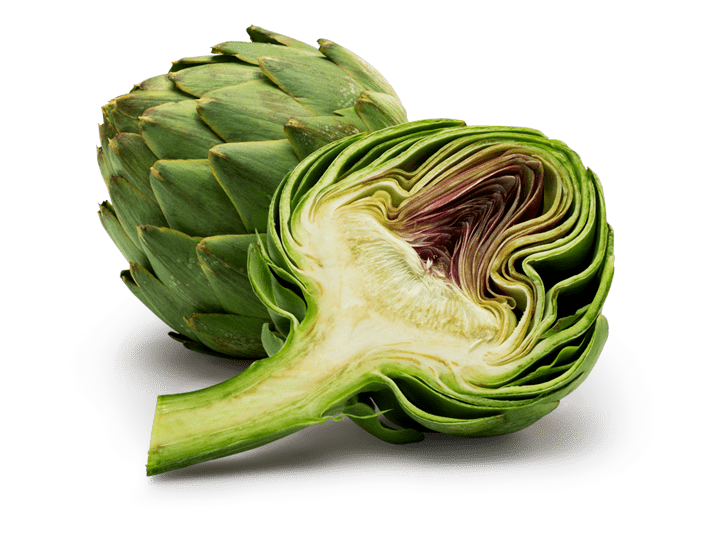Artichokes
The artichoke is an immature bud, if left to grown becomes a bright-purple thistle-like flower often seen at the farmer's market in bouquets. The center of the artichoke, the "choke", is inedible with the most desired portion being the "heart."
Nutrition
Good source of Iron 10%, which helps carry oxygen in the body.
Excellent source of Magnesium 20%, which supports energy metabolism.
How do you pick artichokes?
Select deep green artichokes which are compact, firm globes and heavy for their size. During the summer and fall seasons, artichokes are slightly more oblong in shape, with slightly flared leaves. Artichokes should give slightly to pressure and have tight leaf formation. Do not select artichokes with heavy browning, spotting or look shriveled. (However, artichokes can have a slight darkening on leaf tips during late winter or early spring which is caused by chill or frost damage. This will not affect the quality of the artichoke.)
How do you prepare artichokes?
Wash artichokes under running water. Pull off lower leaves, cut stem to 1-inch or less and snip off tips of petals. Brush cut edges with lemon juice to prevent browning.
How do you store artichokes?
Store unwashed artichokes in a plastic bag and refrigerate in vegetable crisper or drawer, away from fruits. Best if used within a couple of days, but will keep in refrigerator for up to 1 week.
Get Some Fresh Inspiration


